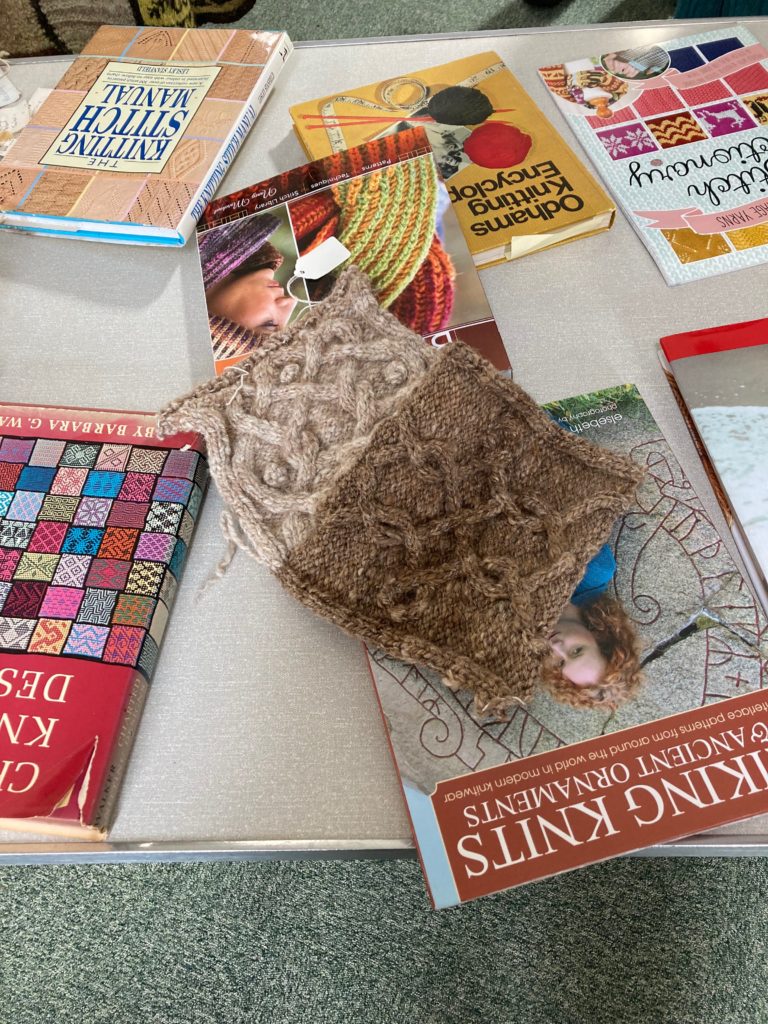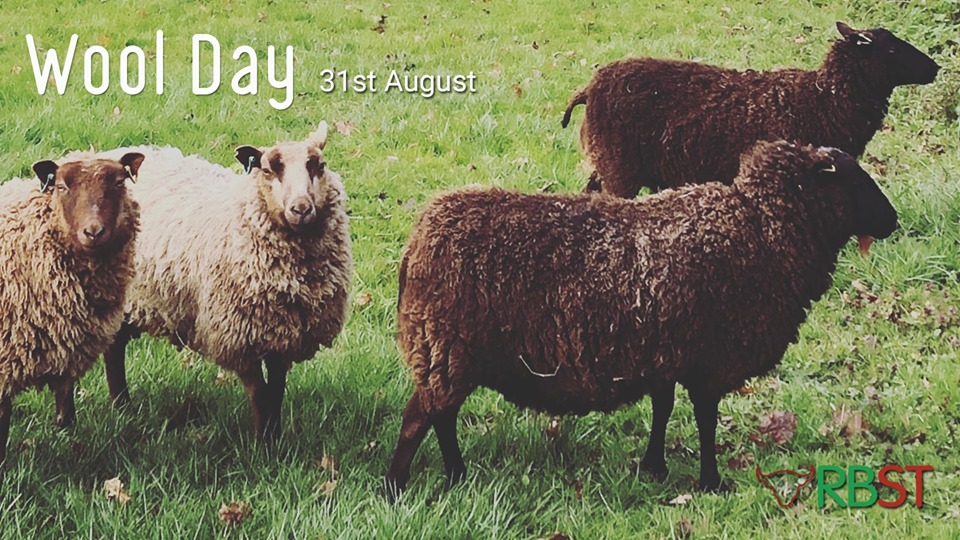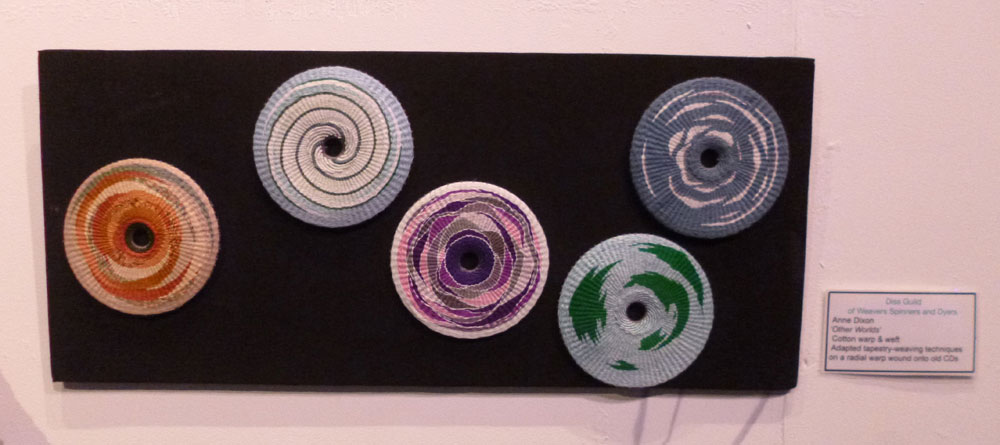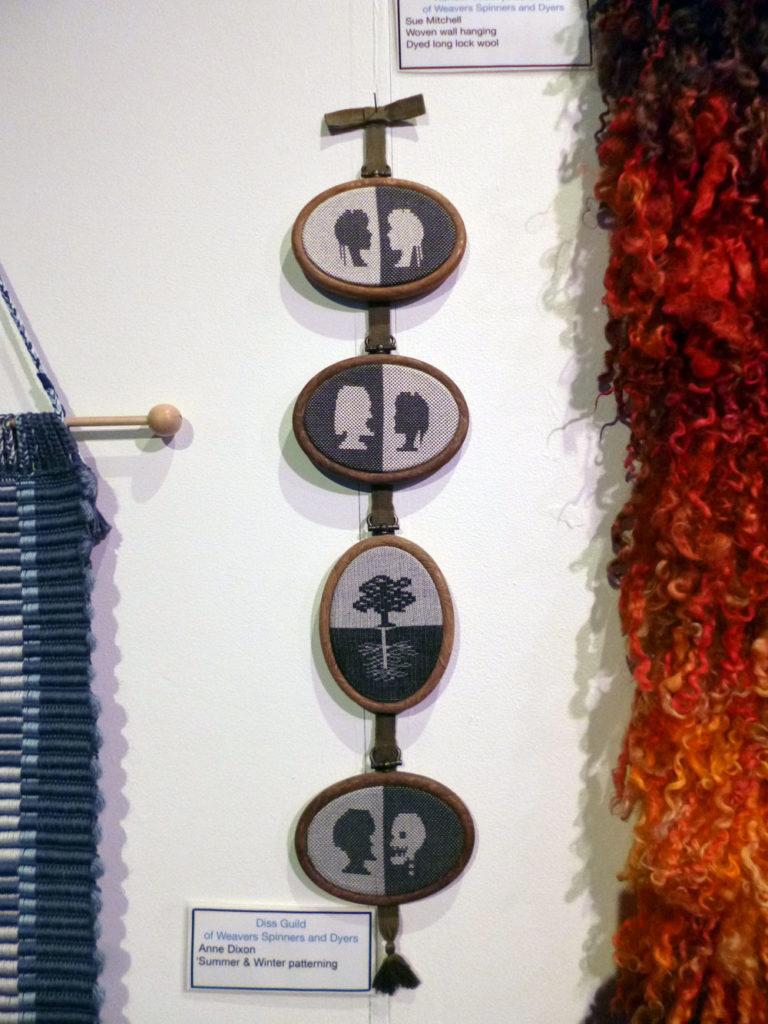It has been a busy summer for Diss Guild as events and shows have re-emerged following the pandemic.
Members were invited to support the Rare Breeds Animal Farm at the Norfolk Show at the end of June. Members from the Diss Guild joined members from other Norfolk Guilds to demonstrate spinning, weaving and knitting using yarns from the rare breeds on show. The fleece from Norfolk Horn, Devon Close wool and Welsh Mountain sheep (to name a few) were either spun to use in weaving and knitting, or used in peg loom weaving. Great fun was had by all and it was wonderful to interact with the public and share and demonstrate traditional skills using fleece from the Rare breeds.

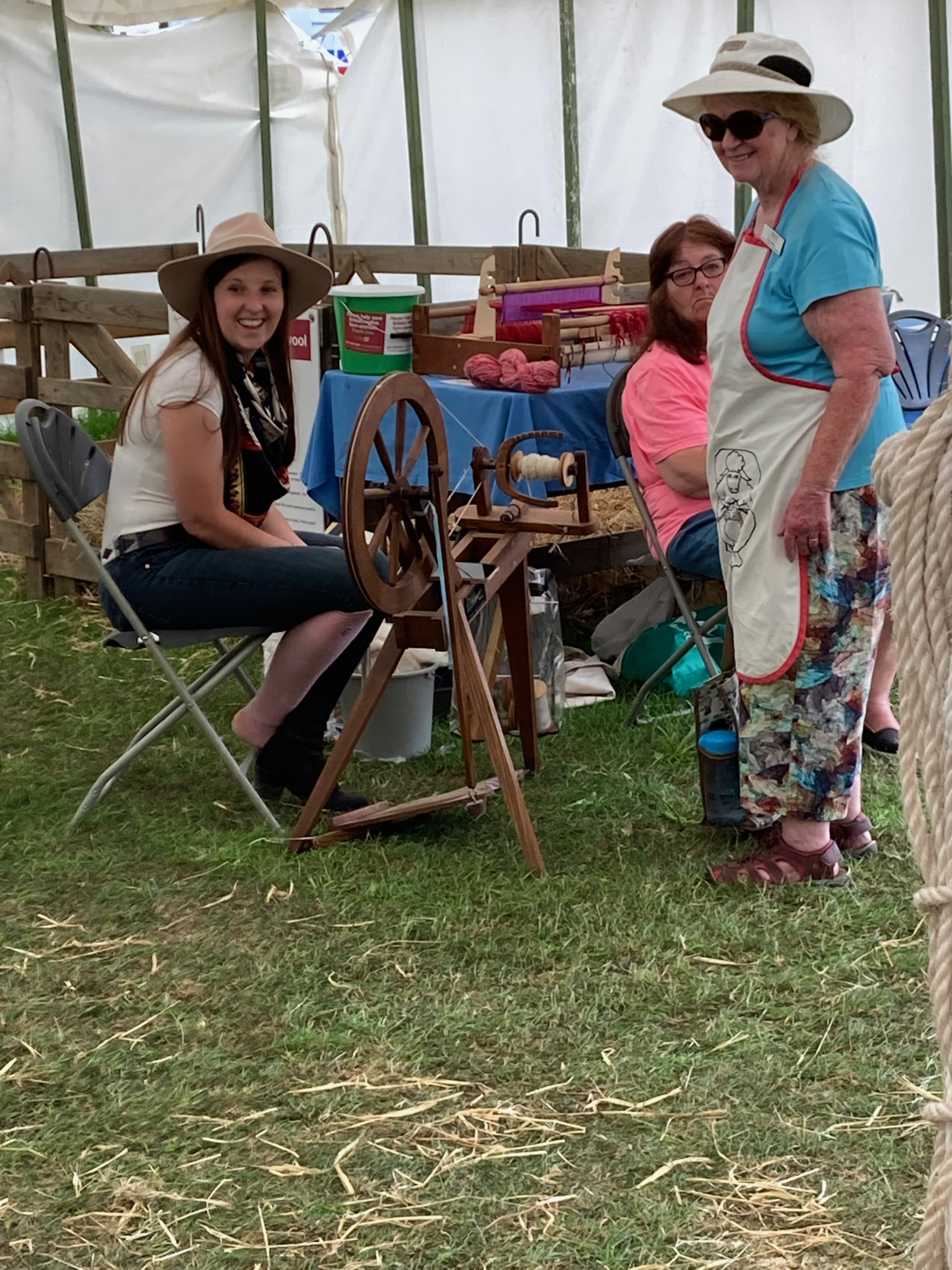
Members from Diss Guild were also invited to demonstrate with the Norwich City Guild at the Strumpshaw Tree Fair in July. This was a very enjoyable event and despite the heat, there was a lot of spinning, weaving and discussion with the public, whilst seeking the shade of a nearby tree. The Fair has a lovely relaxed atmosphere and it was a great opportunity to sit and spin.
Norfolk Day on the 27th July saw members from the Diss Guild at Diss Mere. Norfolk Day was introduced in 2018 to celebrate the history and culture of the great county of Norfolk. Several members bought their spinning wheels and spun yarn to represent the history of textiles in South Norfolk, which was noted for growing hemp and flax. The textiles produced would have been a cottage industry, with communities involved in the growing, harvesting, retting and spinning yarn to make linen; by the 1600’s Diss was shown to produce sizeable quantities of linen. There was a lot of interest from people passing by. They were not only interested in spinning and the Guild but also to learn about the history of textiles in Diss.






